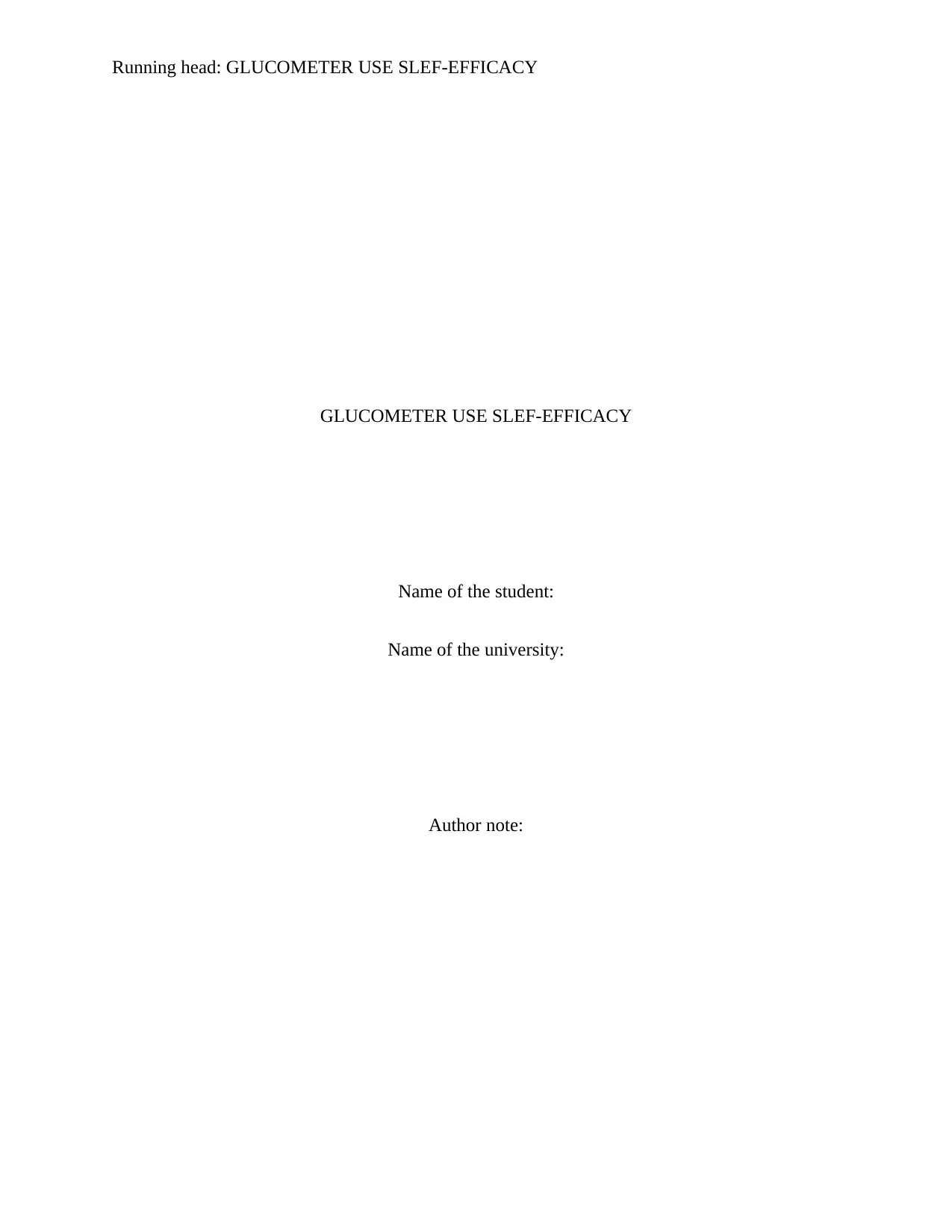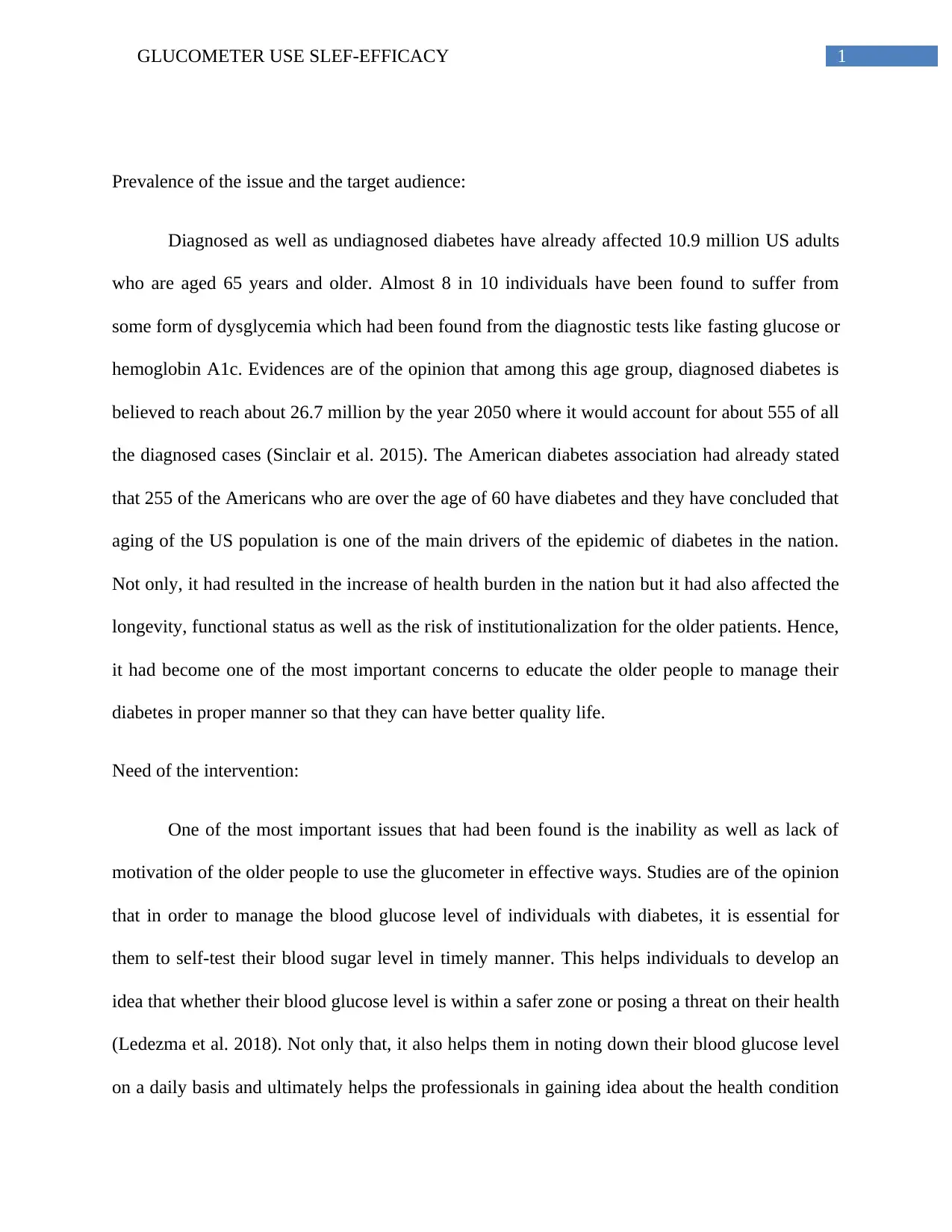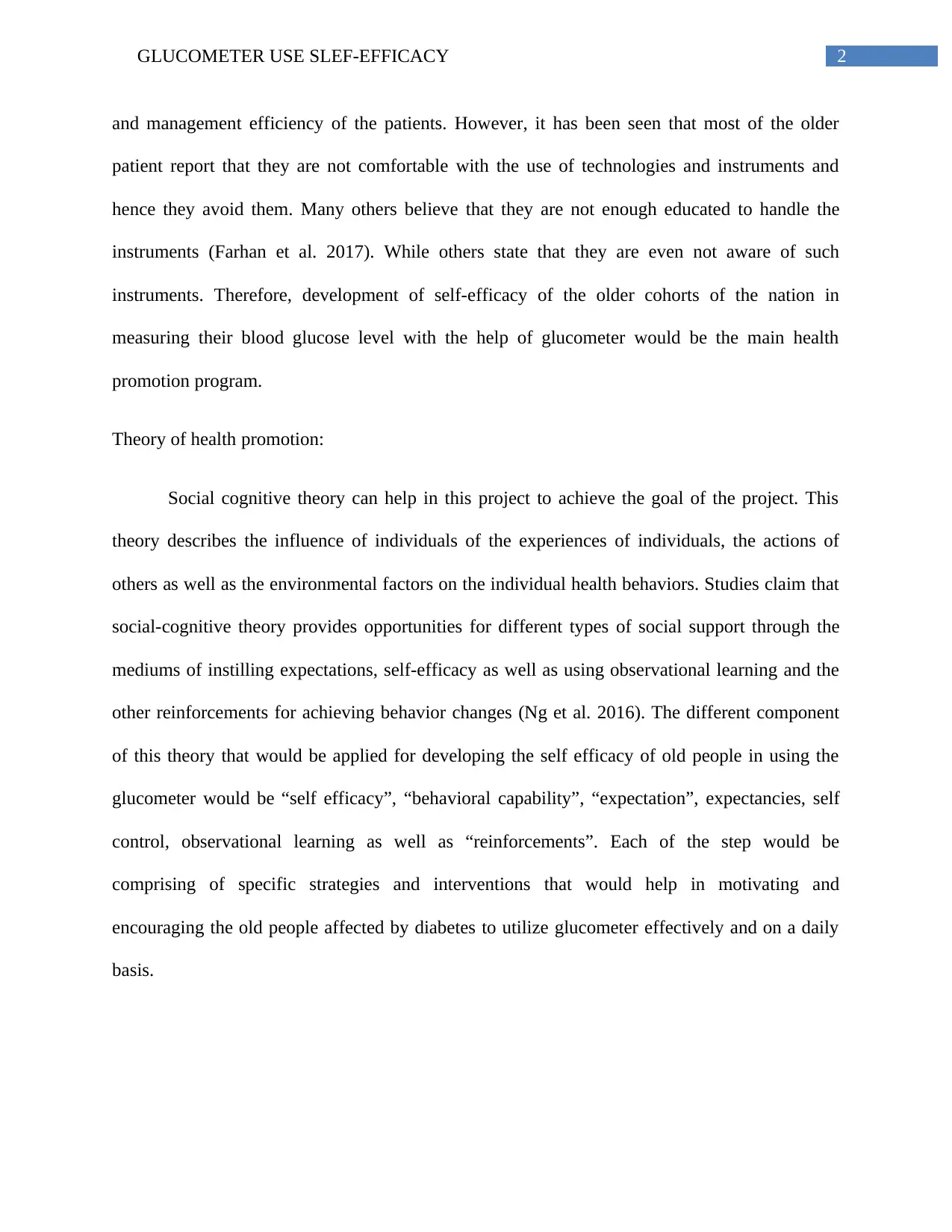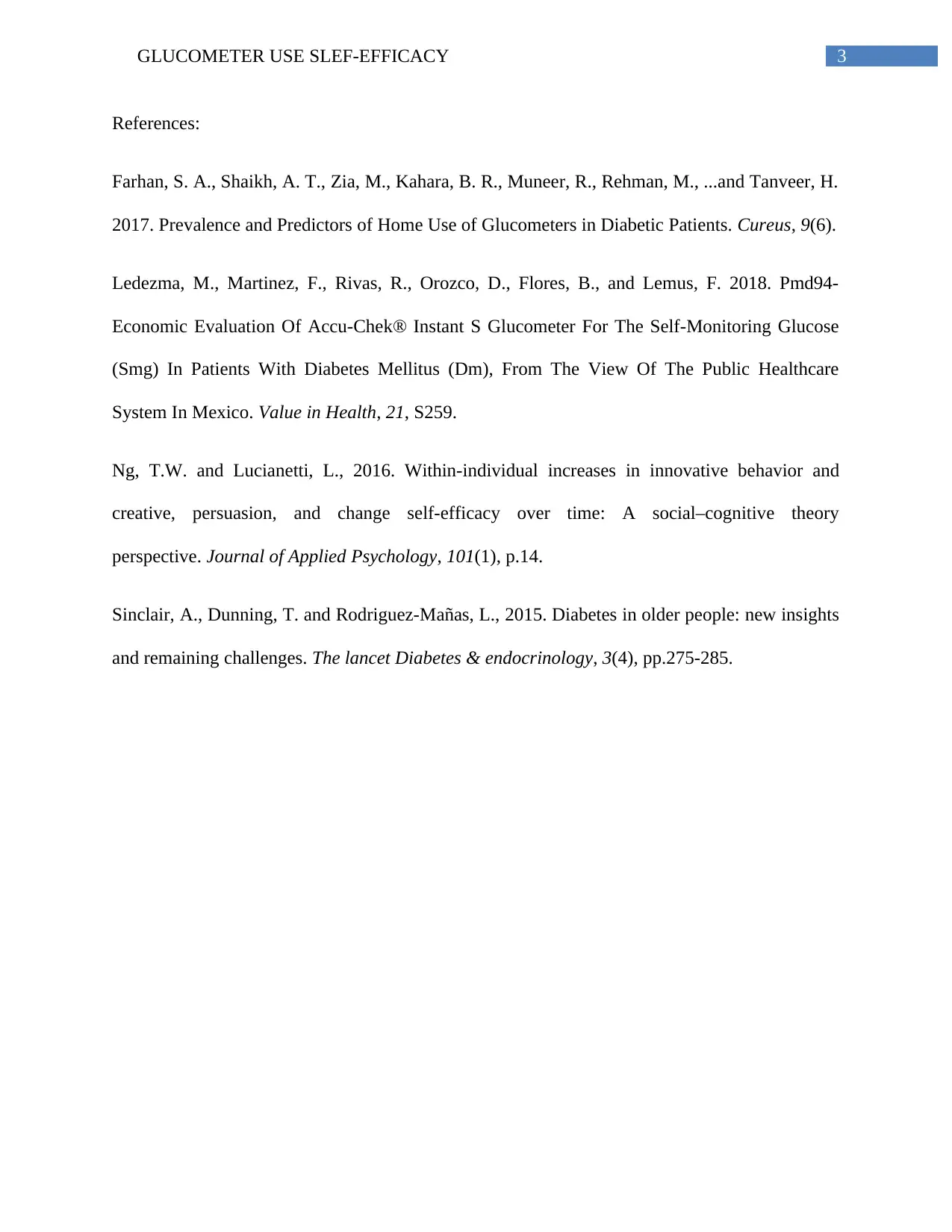Improving Glucometer Self-Efficacy for Older Adults: A Health Program
VerifiedAdded on 2023/04/25
|4
|875
|78
Report
AI Summary
This report addresses the critical issue of managing diabetes among older adults by focusing on improving their self-efficacy in using glucometers. The prevalence of diabetes in the aging US population is significant, leading to increased health burdens and reduced quality of life. The intervention aims to tackle the inability and lack of motivation among older individuals to effectively use glucometers for self-monitoring blood glucose levels. The health promotion program utilizes social cognitive theory, incorporating elements such as self-efficacy, behavioral capability, expectations, self-control, observational learning, and reinforcements. Specific strategies and interventions are designed to motivate and encourage older adults to use glucometers effectively and consistently, ultimately improving their diabetes management and overall health outcomes.
1 out of 4











![[object Object]](/_next/static/media/star-bottom.7253800d.svg)